Pride House LA Talks About Queer Advocacy & The Impact of Dance. The saying goes, “Dance like nobody’s watching.” But when you’re Mollee Gray, Kent Boyd, and Jeka Jane, you dance like everybody’s watching – because everybody is. How do we know?
This talented trio’s Pride House LA TikTok account has over 6 million likes and over 413,000 followers. Pride House LA, the TikTok house, was created to be an LGBTQ+ safe and inclusive space and gained notoriety when Jojo Siwa came out in a video posted to their account.
Whether on social media, at dance conventions, or on tour–Jeka was in the middle of the Femuline World Tour when we spoke– these professional dancers are melding the worlds of dance, LGBTQ+ advocacy, and social media.
We caught up with Mollee, Kent, and Jeka, who chatted with us about founding Pride House LA, finding your niche, and how dance continues to open doors.
Let’s talk about the dance community and its evolution in the last few years. What do you think changed for dancers that have seen the community take a more entrepreneurial route with their careers?
Pride House LA / Mollee Gray: I think before, like when we were all growing up, dance wasn’t even really an option to be a career. People were like, “No way you can make it as a dancer.” And then, you know, we graduated, and there were a lot of TV shows, reality shows that kind of put dance on the market to be a viable career.
And now there are so many more [opportunities], especially with social media, to become an entrepreneur of your own business, how you brand your dancing, yourself, and your style. This social media era has really elevated what we do.
Pride House LA / Kent Boyd: I mean, smartphones, technology’s changed everything. We can now get in front of the faces of the masses, and I think large companies now see the marketability of dance. And I believe apps like TikTok have changed so many lives for many of our friends.
You see them kind of as struggling artists– they have to have two jobs and audition at night. Social media and technology have branched out instead of just the concert work or whether you’re in New York or touring with the artists.
You can take things into your own hands now, and I think it’s great for dance as a whole, you know? So I’m curious to see where it goes in the next three years because it’s changed drastically since the pandemic. And Jeka is literally on a gig right now, touring and traveling. So it’s incredible that that can even happen.
Pride House LA / Jeka Jane: And I feel like I got the gig because of or through social media. Essentially, like we met Todrick Hall doing TikToks. And so I feel like that connection; I think I’m very blessed and honored to have met him and for him to put me on his tour. I’m just honored to be here.
The three of you found a way to bridge your passion for dance with advocacy for the LGBTQ+ community and then mesh all these things together, forming Pride House LA. I think that’s a thing that many people want to do. They want to be able to create art; they want to have a social impact. And then, if they’re lucky, they can turn that into a business, right? So how did you make that happen?
Pride House LA / Mollee Gray: I think that’s what makes [Pride House] so unique is everything has been very organic. We’ve never forced an opinion on somebody. We educate through all of it, you know? My favorite thing about all three of us that makes us great as a group is we’ve all been background dancers.
We’ve been the leader of something. We’ve worked so cohesively and know how to work every part. And what’s awesome is that each of us has this significant role within the house that completes it. And I think that’s what makes it so unique is because we’re not forcing the magic. It’s just literally right there.
Pride House LA / Kent Boyd: All of those things. That is the dream. And I don’t think we necessarily realized it was the dream. That day on the beach was symbolic because we got together, but I don’t think we understood what we were yet until that collaboration with JoJo Siwa.
And that, to all of us, I think, gave us the confidence to look at ourselves as role models and as a safe space for the queer community or the youth to come to us and express this–especially with the climate of the world today. I remember in 2020 when people were talking about TikTok going away, and I was like, “No! They can’t take this away.
They can’t take away our after-school party. They can’t take away the examples that we’re trying to shed and the light that we’re trying to do through our dancing and our skills and talent and voices.” We wanted that purpose. We wanted that place.
Pride House LA / Mollee Gray: What I love about our house, too, is we always have these in-depth conversations whether it’s like, “Hey, was that offensive? How do we talk about that during this meeting?” What are our boundaries? And so that’s what I love about us, too. And I think what we didn’t realize was going to happen with PrideHouse is how many heavy stories there are. And we are people who want to help and fix.
We get messages from the trans community, and Jeka is excellent at responding. Sometimes you have to choose if you react in a DM or talk about it as public knowledge because you’re crossing boundaries.
Sometimes you’re talking to a young kid who’s under 18, who’s like, “I need somebody to talk to because my parents don’t accept me,” so it’s finding that boundary of how to communicate with our community safely and proficiently and also a way to help them be themselves.
Pride House LA / Kent Boyd: We want to be transparent 100%. But we also want to be that gap that we needed when I was 15 questioning things, and I didn’t have resources, and I needed someone older and relatable, and who had dealt with it, you know? I think that is our most significant objective here, to make our community not feel alone. And if anything, get out and rejoice and celebrate who you are by moving your body by dancing and listening to the beat and expressing and continuing to put yourself out there because great things come.
The support behind Pride House has been immense, and it seems like it’s continuing to grow. What does it feel like to have that much support behind you?
Pride House LA / Kent Boyd: It’s amazing. I mean, not only the support from the community but two weeks ago, Pride House was invited to go to Disney World and go on a Disney Cruise, and it’s just like to see a company of that caliber support a queer-based TikTok house was emotional. And it’s just like, wow, this is why I’m doing what I do. Because now we’re affecting people, and it’s just about continuing to grow that and honor that and learn more.
Pride House LA / Mollee Gray: I think what’s unique about the support is like you think about our generation who came out. We were so scared because we thought we wouldn’t have support. And to now be on the flip side of it and being part of that generational change and helping the younger generation come up and feel confident. It just feels full circle.
Sometimes we look at dance as an outlet. But I think more recently–with the trajectory of your careers as an example– we can see it more as a doorway or an avenue. Is that a statement that you would agree with?
Pride House LA / Kent Boyd: Absolutely. Now I’m like, people can definitely make a career out of dancing and out of moving. We want kids to continue to practice because there’s an end goal, and there are so many different avenues that they can go with such a skill. We just repeat patterns, right?
And so to have a pattern that is beautiful and fun and vivacious like dance is going to seep into your life in every aspect. Whether you become a professional dancer or an accountant, those qualities, those competencies, and the understanding of your body will take you further and further.
Pride House LA / Mollee Gray: And you already see people advocating more for choreographers and dancers in those big Academy Awards. You look at some of your favorite movies or Ariana DeBose–we were on this same season of So You Think You Can Dance. And ironically, she was voted off first, and she’s now like one of the biggest stars, which happened because of dance.
And she’s part of the queer community, and I feel like people can look at people like her and say, “Wow, look at that doorway that dance led to.” Choreographers need to be getting awards just like lead actors, just like directors, because movies like La La land and In the Heights, none of them would not be the same without the choreography.
And so I do feel there’s going to be change; making sure those choreographers are in the forefront just like directors and lead actors.
Pride House LA / Jeka Jane: And even the dancers. I think you’re starting to see a little bit more crediting for the involved dancers. Before watching movies, you would see the choreographer; obviously, then they would just say “dancers.” But now they’re taking time to put everybody’s credit in there.
I think that’s important too. Dancers, we put in just as much work, right? My knees are aching already, learning the choreography and the days and days and hours on hours of putting our bodies through all these moves. But it feels nice to give credit where credit is due.
Pride House LA / Kent Boyd: Yeah, people see the magic in dance now, and I think it’ll only grow.
Stay Social With Pride House LA
Instagram @pridehousela
Photography: KT Madden @kt.madden
Hair and Makeup: Christine Hazelhurst @christine_pro_makeup
Wardrobe: Pride House LA
Want the latest posts, offers, and exclusive content straight to your inbox? Subscribe to our newsletter and never miss out again. See more Culture here.


